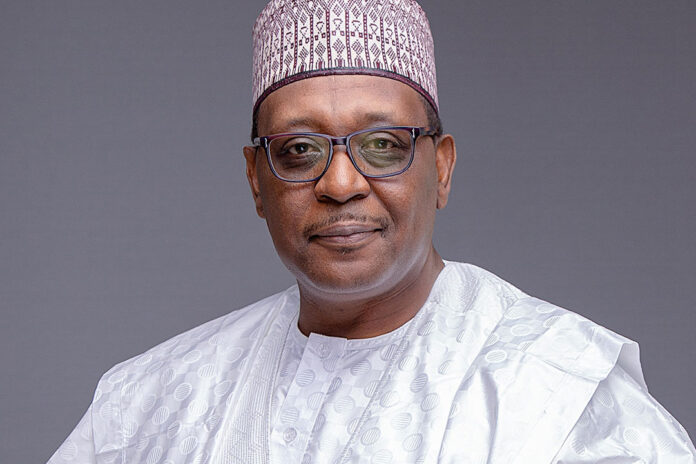The Coordinating Ministry of Health and Social Welfare has revealed that Nigerian households are shouldering an overwhelming portion of the nation’s health expenditure. Dr. Kamil Soretire, Director of Health Planning, Research, and Statistics, discussed this issue in an interview with the News Agency of Nigeria (NAN) on Friday in Abuja.
Dr. Soretire highlighted that in 2022, healthcare spending accounted for 4.6% of Nigeria’s GDP, with government contributions only amounting to 0.8%. He explained that approximately 70% to 80% of the funding came from the private sector and household contributions, indicating a significant financial burden on families.
“There is a need for improved legislative stewardship and accountability to achieve universal health coverage,” Soretire stated. He noted that households bore over 70% of healthcare costs in 2022, while government schemes covered just 13%.
The director urged legislators to expand social insurance coverage to alleviate the financial burden on households. He mentioned that primary healthcare centres received minimal funding, highlighting a critical area requiring legislative support and integration with social health insurance programmes.
Soretire also noted the dominance of healthcare spending on diseases like malaria and non-communicable diseases, underscoring the need for enhanced state-level initiatives and legislative action to improve healthcare delivery.
“The 72.4% of the total health expenditure contributed by households in 2022 amounted to N6.8 trillion (16 billion dollars), far exceeding the recommended 30% to 40% threshold. This stark figure underscores the financial strain on families and the gaps in health insurance coverage in the country,” he said.
Dr. Soretire provided detailed statistics, indicating that the total health expenditure (THE) for 2022 stood at N9.19 trillion (21.71 billion dollars), representing 4.6% of Nigeria’s GDP. This marked an increase from 3.7% and 4.3% of GDP in 2020 and 2021, respectively.
On a per capita basis, health spending rose to 100 dollars, up from 76.3 dollars in 2020 and 88.8 dollars in 2021. Despite these increases, the reliance on private spending remains alarmingly high, he added.
Regarding public donor contributions, Soretire stated that public funds, encompassing federal, state, and local government contributions, accounted for only 14.4% of the total health expenditure (N1.3 trillion or 3.14 billion dollars). Donor contributions constituted 11.6% (N1.06 trillion or 2.51 billion dollars), highlighting the heavy dependence on private funds to finance healthcare services.
Soretire explained that government schemes contributed a mere 10.6% of the revenue for financing schemes, with households providing a staggering 72.4%. Other sources of financing included donor funds managed by their agencies (9.1%), social insurance revenues (1.4%), and voluntary insurance revenues (1.1%).
“In terms of expenditure type, current expenditure dominated at 96.3% (N8.85 trillion or 20.90 billion dollars), while capital expenditure accounted for just 3.7% (N342.8 billion or 0.81 billion dollars),” he said.
Secondary hospitals accounted for the largest share of health services at 34.6%, followed by pharmacies and other medical goods providers at 19.3%. “Primary Healthcare Centers (PHCs), in spite of their critical role, provided only 7.0% of the services. This skewed distribution raises concerns about the accessibility and availability of primary care services,” he noted.
Soretire further mentioned that about 55% of health expenditure was directed towards communicable diseases, with malaria incurring the highest costs. Expenditure on reproductive health and non-communicable diseases stood at 14.3% and 14%, respectively, highlighting the need for balanced attention across different health priorities.

Dr. Aminu Magashi, Coordinator of the Africa Health Budget Network (AHBN), also stressed the urgent need for enhanced government funding and expanded insurance coverage. Magashi, a health economist, noted that high out-of-pocket spending by households underlined the necessity for policies aimed at reducing financial barriers to healthcare to improve health outcomes and reduce poverty.
He suggested that increasing government expenditure and implementing comprehensive health insurance schemes could mitigate the financial risks faced by households. “We need robust policies that increase public funding and ensure that health services are accessible to all, regardless of their economic status,” Magashi said.
Affected households also shared their struggles. Mr. John Okeke, a resident of the FCT and a school teacher, said he spent a large part of his income on healthcare, “yet it is still not enough.” Okeke noted that insurance coverage was minimal, with people left to fend for themselves. He urged the government to address these issues to reduce the financial burden on households and improve the overall health and well-being of the population.




